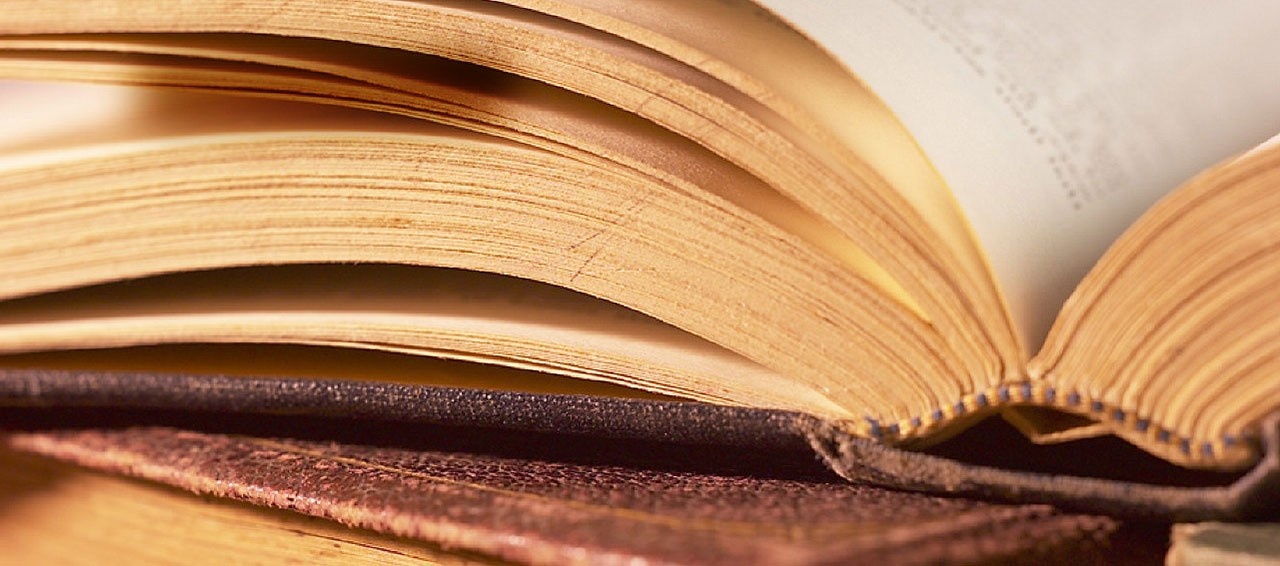Professors Emeriti
Professors Emeriti are our retired faculty that still contribute by continued research, writing, and mentoring others who have an interest in English Literature.
Here are our professor Emeriti, along with a short bio on each.
William Barker, PhD

Inglis Professor Emeritus, University of King's College
Email: william.barker@dal.ca
Research Topics:
- Early Modern Literature
John Baxter, PhD
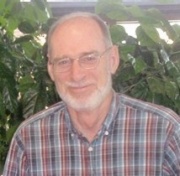
Professor Emeritus
Email: John.Baxter@dal.ca
Research Topics:
- Early Modern Literature
- Rhetoric and Poetics
- Religion and Literature
Education:
- BA, BEd, MA, PhD (Alberta)
Selected Publications:
Books
- Shakespeare's Poetic Styles: Verse Into Drama. 1980; reprinted London: Routledge, 2005.
- [as editor, with Gordon Harvey.] In Defence of Adam: Essays on Bunyan, Milton, and Others by C. Q. Drummond. Norfolk: Brynmill Press/ Edgeways Books, 2004. Paperback edition, 2005.
- [as editor, with J. Patrick Atherton.] Aristotleâs Poetics. Translation and Commentary by George Whalley. Kingston and Montreal: McGill-Queen's University Press, 1997.
Articles
- âLearning to Spell: George Herbert and the Art of Reading,â George Herbert Journal, Vol. 44 (2023): 63-83.
- âThe Grammar of Faith in Twelfth Night: Richard Hookerâs Gift to Shakespeare,â in Faith and Reason in the Reformations, ed. Terence J. Kleven (Lanham, MD: Lexington Books, 2022), 57-74.
- âThe Aristotle-Coleridge Axis Revisited,â Plenary address from the Proceedings of the 2015 George Whalley Conference. (Fall, 2016).
- âTying the Knot in Othello,â&ČÔČúČő±è;Essays in Criticism 64.3 (July, 2014): 266-92.
- âReported Speech in The Winterâs Tale,â&ČÔČúČő±è;Renaissance and Reformation / Renaissance et Reforme 36.3 (Summer, 2013): 127-51.
- âPerilous Stuff: Poems of Religious Meditation,â Renascence: Essays on Value in Literature 62.2 (Winter, 2010):89-115. Winner of the 2012 Joseph M. Schwarz Memorial Prize ($1000).
Leonard Diepeveen, PhD

Emeritus George Munro Chair in Literature and Rhetoric
Fellow of the Royal Society of Canada, 2020
Email: Leonard.Diepeveen@dal.ca
Research Topics:
- American Literature
- Modernist Literature
- Visual Arts and Literature
- Fraud and Modernism
Education:
- BA - Calvin College
- MA, PhD - Illinois
Selected Publications:
- "Shiny Things: Reflective Surfaces and Their Mixed Meanings." Co-authored by Timothy van Laar. Intellect Books and University of Chicago, 2021.
- "Modernist Fraud: Hoax, Parody, Deception." Oxford: Oxford University Press, 2019.
- Ed. "Tender Buttons," by Gertrude Stein. Peterborough, ON: Broadview, 2018.
- Ed. "Mock Modernism: An Anthology of Parodies, Travesties, Frauds; 1910-1935." Toronto: University of Toronto Press, 2014.
- "Artworld Prestige: Arguing Cultural Value." New York: Oxford University Press, 2013. Co-authored by Timothy van Laar.
- "The Difficulties of Modernism." New York: Routledge, 2003.
- "Changing Voices: The Modern Quoting Poem." Ann Arbor: University of Michigan Press, 1993.
Awards:
- SSHRC Research Grant, 1995-1998, 2005-2008.
Ronald Huebert, PhD

Professor Emeritus
Email: ronald.huebert@dal.ca
Research Topics:
- Early Modern literature
- John Donne
- Spectatorship
- Privacy
Education:
- BA - Saskatchewan
- MA, PhD - Pittsburgh
Professor Huebert has been concerned for many years with the nominally antithetical notions of spectatorship and privacy. At present, he is writing a work of historical fiction in which John Donne is the protagonist. All of these interests converge in his essay, "Looking at John Donne Looking at God," chapter seven in Early Modern Spectatorship, a collection of essays he edited in collaboration with David McNeil. The publication of his mongraph, Privacy in the Age of Shakespeare, was followed by a Lifetime Achievement Award from the Canadian Society for Renaissance Studies.
His taste for interdisciplinary thinking led him to serve for several years as Editor of The HÂț» Review, and to participate in the development of the Early Modern Studies Program at the University of King's College. He loves live theatre and seventeenth-century manuscripts; he would not wish to choose one over the other.
Selected Publications:
Books:
- [As editor, with David McNeil] "Early Modern Spectatorship: Interpreting English Culture", 1500â1700. MontrĂ©al: McGill-Queens's University Press, 2018.
- "Privacy in the age of Shakespeare." Toronto: University of Toronto Press, 2016.
- "The Performance of Pleasure in English Renaissance Drama." Houndmills, Basingstoke: Palgrave Macmillan, 2003.
Articles:
- "What's wring with Mis-devotion? A John Donne Enigma."Renaissance and Reformation/Renaissance et RĂ©forme 41.2 (2018): 5â20.
- "'Study our Manuscripts': John Donne's Problems with Privacy." The Seventeeth Century26.1 (2011): 1-21.
Awards
- Lifetime Achievement Award, Canadian Society for Renaissance Studies (2016)
Christina Luckyj

Professor Emerita
Email: Christina.luckyj@dal.ca
Research Topics:
- Early Modern literature
- Gender studies
- Elizabethan and Jacobean drama
- 17th century women's writing
Education:
- BA, MA, PhD - Toronto
Selected Publications
Books:
- "Liberty and the Politics of the Female Voice in Early Stuart England." Cambridge: Cambridge University Press, 2022.
- "The Politics of Female Alliance in Early Modern England". Lincoln: University of Nebraska Press, 2017. Co-Editors: Christina Luckyj and Niamh J. O'Leary. **Winner of Society for the Study of Early Modern Women Award for Best Collaborative Project published in 2017. **
Editions (forthcoming):
- The Winter's Tale; William Shakespeare, (for Cambridge New Shakespeare Editions)
- The Works of Lady Anne Southwell (with Victoria Burke and Danielle Clarke, for The Other Voice in Early Modern Europe)
Recent Essays:
- âBody and Soul: Twenty-First Century Approaches to The Winterâs Tale, 2000-2022.â The Winterâs Tale: A Critical Reader, ed. Peter Kirwan and Todd Borlik. London: Arden Bloomsbury.
- âTłó±đ&ČÔČúČő±è;Querelle des Femmes, the Overbury Scandal and the Politics of the Swetnam Controversy in Early Modern England,â&ČÔČúČő±è;The Oxford Handbook of Early Modern Womenâs Writing in English 1540-1680, ed. Elizabeth Scott-Baumann, Danielle Clarke and Sarah C.E. Ross. Oxford: Oxford University Press.
Awards
- SSHRC Insight Grant (2013-18)
- Killam Postdoctoral Fellowship
- SSHRC Standard Research Grant
- Research and Development Fund Grants
Marjorie Stone
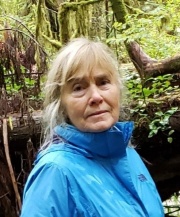
McCulloch Professor Emerita
Email: marjorie.stone@dal.ca
Research Topics:
- Victorian Literature
- 19th Century Transatlantic Antislavery Literature
- Gender studies
- Literature and Medicine
- Literary Collaboration and Theory
Education:
- BA - Guelph
- MA, MPhil - Waterloo
- PhD - Toronto
My primary research interests lie in Victorian and Nineteenth-Century Studies, reflected in publications on Dickens, Charlotte BrontĂ«, Gaskell, Tennyson, Robert Browning, Christina Rossetti, Frederick Douglass, and Emily Dickinson, among other writers â especially Elizabeth Barrett Browning (EBB). My fascination with EBB underlies the critical study Elizabeth Barrett Browning (1995), articles and essays about her writing and relationships with other authors, and collaborative editorial projects, including the five-volume Works of Elizabeth Barrett Browning (2010). My interest in both the theory and practice of collaboration developed out of co-editing Writing Couples and the Construction of Authorship (2006). I also have long-standing interests in womenâs writing more generally. Recently, I guest-edited a Forum on âPoetess Debatesâ for Victorian Review (Fall, 2022). Currently, I am working on a contracted essay on EBBâs Aurora Leigh in relation to nineteenth-century sex trafficking, and a book project on the creative processes revealed by her widely scattered poetical manuscripts.
Publications:
- âWitness Narratives and Working Class Suffering: âThe Cry of the Children,â Corn Law Rhymes, and Elizabeth Barrett Browningâs Unpublished Hunger Ballad.â Victorian Studies, 62: 4 (2020): 616-43.
- âNot Death, but Loveâ: The Unmaking of âSonnets in the nightâ and the Making of Sonnets from the Portuguese.â Co-author Kirstie Blair, University of Glasglow. Poetry in the Making, ed. Daniel Tyler, Oxford University Press, 2020, 95-118.
- âElizabeth Barrett Browningâs Unpublished Honeymoon Poem, a Poetics in Transition, and Petrarchâs Vaucluse: âWilder ever still & wilder!ââ. Co-author Beverly Taylor, University of North Carolina, Chapel Hill. Victorian Poetry, 57: (2019): 1-42.
- âPolitics, Protest, Interventions: Beyond a Poetess Tradition.â The Cambridge Companion to Victorian Womenâs Poetry, ed. Linda K. Hughes. Cambridge: Cambridge University Press, 2019, 145-60.
- âWomanâs Powersâ and Emily Dickinsonâs âQueensâ: Elizabeth Barrett Browning, Charlotte BrontĂ«, and George Eliot in 1861-62.â Special issue of Womenâs Writing on âGenerations.â Pub. Online October 2018.
- "The Works of Elizabeth Barrett Browning", 5 volumes. Co-editor for Volumes I, II and V. General Editor, Sandra Donaldson, Volume Editors: Rita Patteson, Marjorie Stone, & Beverly Taylor (London: Pickering and Chatto Press, 2010. Scholarly edition with critical introductions, extended headnotes, annotation and textual variants.
Judith Thompson, PhD
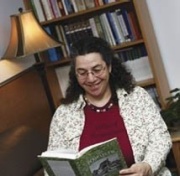
Professor Emerita
Email: Judith.thompson@dal.ca
Research Topics:
- Textual studies
- Romanticism
- European studies
- Literary theory
- Digital humanities
- History of the book
Education:
- BA - Western
- MA, PhD - Toronto
A Romanticist by profession and predilection, Judith Thompson hails from Ontario, where she received her BA from UWO in 1979. Six months wandering the moors and mountains of Britain and Europe, followed (and not completely undermined) by 7 years of grad school (at U of T), transformed her into a professor of British Romantic Literature, with a special interest in poetry and politics within the intersecting circles of the Romantic period. Her continuing and apparently permanent obsession is with the work of âCitizen Johnâ Thelwall, the polymath poet, playwright, novelist, orator, radical political activist, pioneer speech therapist and maker of the English working class, a linchpin figure who âstraddled the world of Wordsworth and Coleridge, and the world of the Spitalfields weavers.â
Professor Thompson is a world leader in the rapidly expanding field of Thelwall Studies, and a founding member and official archivist of the John Thelwall Society. She edited Thelwallâs eccentric quasi-novel The Peripatetic in 2001, discovered a huge hidden cache of his unpublished poetry while Indiana Jonesing in the UK in 2004, and facilitated a world-premiere performance and video publication of his spectacular fantasy The Fairy of the Lake, in 2009.
In 2012 she published her revolutionary exposĂ© of Thelwallâs role in Romanticism, John Thelwall in the Wordsworth Circle: The Silenced Partner and in 2013 she co-edited Thelwallâs feminist-abolitionist-anti-imperialist novel The Daughter of Adoption. She has also written and published on genre and collaboration, and has a strong interest in womenâs writing. She is currently editing John Thelwallâs Selected Poetry and Poetics; after that she seems fated to write the first modern biography of Thelwall and who knows, maybe even a screenplay (it's one of the best untold stories in English literary history!). In the meantime she keeps finding new stuff, generating more research ideas than she can ever follow up, and therefore seeking to pass the torch to younger hands.
Dr. Thompson is currently editing Thelwallâs newly-discovered poetry in print and electronic format, and gathering archival materials towards her biography of Thelwall. She is or has recently written or presented on Transatlantic Thelwall, Romantic Oratory, Thelwall and Dickens, Adoption in Romantic-era novels, and Arthurian rivalries in the Romantic period; and is or has recently supervised theses on Romantic-era Medicine, Atheist Nationalism, and the Female Voice.
Thompson is looking for grad students eager to forge forward into unexplored territory in such diverse Thelwallian fields as romantic theatre, radical medicine, speech poetics, popular performance, working class culture, collaborative authorship, the history of adult education, and the relation between generations, genders and genres in the eighteenth and nineteenth centuries. As official archivist of the John Thelwall Society, Dr. Thompson is particularly interested in supervising editorial projects. If you work with Professor Thompson, you will have the rare opportunity to do truly pioneering research, even at the MA level; this was the case with Tara-Lynn Fleming, a chapter of whose 2006 MA thesis on Thelwall in the lyceum tradition was published in the first collection of scholarly essays on Thelwall in 2006.
J.A. Wainwright, PhD
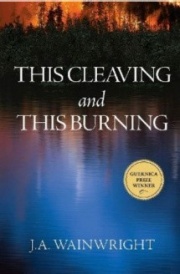
McCulloch Emeritus, Professor in English
Email: andrew.wainwright@dal.ca
J.A. Wainwright is the author of five books of poetry, six novels, and two biographies, as well as numerous academic articles in refereed journals. His most recent fiction, ", won the Guernica Prize in 2020. He taught in the Department of English for thirty years (1978-2008), including courses in creative writing and on the lyrics and music of Bob Dylan.
